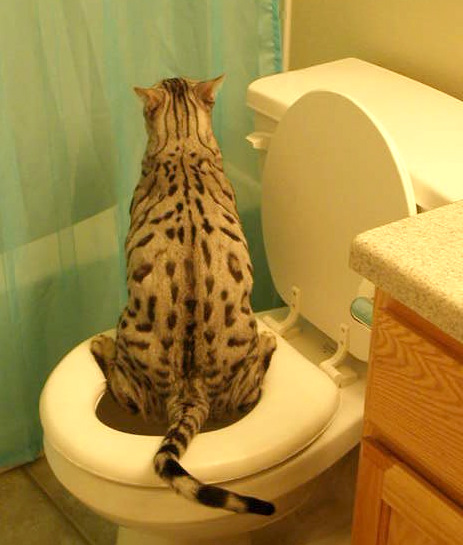Potential Issues of Flushing Cat Poop Down Your Toilet - Safeguard Your Pipes
Potential Issues of Flushing Cat Poop Down Your Toilet - Safeguard Your Pipes
Blog Article
This great article which follows in relation to How to Dispose of Cat Poop and Litter Without Plastic Bags is indeed fascinating. Check it out yourself and figure out what you think of it.

Introduction
As cat proprietors, it's important to be mindful of how we take care of our feline close friends' waste. While it might appear hassle-free to purge pet cat poop down the toilet, this practice can have destructive effects for both the atmosphere and human health.
Ecological Impact
Purging cat poop introduces dangerous pathogens and parasites right into the water, posing a considerable danger to marine ecosystems. These contaminants can negatively impact aquatic life and concession water top quality.
Wellness Risks
Along with ecological worries, flushing feline waste can also position health risks to humans. Pet cat feces might include Toxoplasma gondii, a parasite that can cause toxoplasmosis-- a possibly serious disease, particularly for expectant ladies and individuals with damaged immune systems.
Alternatives to Flushing
Fortunately, there are more secure and more accountable methods to take care of pet cat poop. Think about the following alternatives:
1. Scoop and Dispose in Trash
One of the most typical method of taking care of feline poop is to scoop it into an eco-friendly bag and toss it in the trash. Make sure to use a committed trash scoop and throw away the waste promptly.
2. Usage Biodegradable Litter
Opt for eco-friendly feline clutter made from materials such as corn or wheat. These trashes are eco-friendly and can be safely gotten rid of in the garbage.
3. Hide in the Yard
If you have a yard, take into consideration burying pet cat waste in an assigned location away from vegetable yards and water resources. Make sure to dig deep enough to avoid contamination of groundwater.
4. Mount a Pet Waste Disposal System
Invest in an animal waste disposal system particularly created for cat waste. These systems use enzymes to break down the waste, decreasing odor and environmental impact.
Conclusion
Liable family pet possession prolongs beyond providing food and sanctuary-- it additionally entails appropriate waste administration. By refraining from purging feline poop down the commode and opting for different disposal techniques, we can reduce our ecological impact and safeguard human health.
Why You Should Never Flush Cat Poop Down the Toilet
A rose by any other name might smell as sweet, but not all poop is created equal. Toilets, and our sewage systems, are designed for human excrement, not animal waste. It might seem like it couldn’t hurt to toss cat feces into the loo, but it’s not a good idea to flush cat poop in the toilet.
First and foremost, assuming your cat uses a litter box, any waste is going to have litter on it. And even the smallest amount of litter can wreak havoc on plumbing.
Over time, small amounts build up, filling up your septic system. Most litter sold today is clumping; it is made from a type of clay that hardens when it gets wet. Ever tried to scrape old clumps from the bottom of a litter box? You know just how cement-hard it can get!
Now imagine just a small clump of that stuck in your pipes. A simple de-clogger like Drano isn’t going to cut it. And that means it’s going to cost you big time to fix it.
Parasitic Contamination
Believe it or not, your healthy kitty may be harboring a nasty parasite. Only cats excrete Toxoplasma in their feces. Yet it rarely causes serious health issues in the cats that are infected. Most people will be fine too if infected. Only pregnant women and people with compromised immune systems are at risk. (If you’ve ever heard how women who are expecting are excused from litter cleaning duty, Toxoplasma is why.)
But other animals may have a problem if infected with the parasite. And human water treatment systems aren’t designed to handle it. As a result, the systems don’t remove the parasite before discharging wastewater into local waterways. Fish, shellfish, and other marine life — otters in particular — are susceptible to toxoplasma. If exposed, most will end up with brain damage and many will die.
Depending on the species of fish, they may end up on someone’s fish hook and, ultimately on someone’s dinner plate. If that someone has a chronic illness, they’re at risk.
Skip the Toilet Training
We know there are folks out there who like to toilet train their cats. And we give them props, it takes a lot of work. But thanks to the toxoplasma, it’s not a good idea.

I'm very eager about Can You Flush Cat Poo or Litter Down the Toilet? and I hope you enjoyed reading the entire blog entry. Do you know about another individual who is very much interested in the niche? Be sure share it. Thank you so much for going through it.
Schedule Report this page